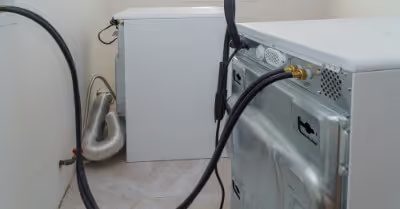Table of Contents
Home Ownership
Home ownership comes with some beneficial tax breaks that apply whether you purchase a single family home, mobile home, condominium, townhouse, or cooperative apartment. Any time you enter into a mortgage contract you are eligible for these tax breaks.
Your taxes will be more complex when you buy a home as well, but this can be a good thing because it will allow you to take advantage of the tax deductions. No longer will you simply put information from your W-2 into another form. You will now have itemized taxes so that you can claim anything that is eligible as a deduction.
Deductions
For taxes there are two ways to take advantage of break. The first way is through tax credits. Tax credits represent the amount of money that you can take off of your tax bill. For example, if you have $100 in tax credit, your taxes will be reduced by $100.
The second way to take advantage of tax breaks is through tax deductions. A tax deduction will reduce your adjusted gross income which will reduce your tax liability. For example, if you are in the 24 percent tax bracket your tax liability will go down by 24 percent of the total amount claimed in deductions. Therefore, if you claim $1000 in deductions, your tax liability will drop about $200.
Standard Deduction
Standard deductions for homeowners change every year. This is the amount that will reduce your taxable income. This deduction works even if you do not have any tax credits or additional deductions. You have a choice to take the standard deduction or to itemize your taxes, but you cannot do both. Itemized deductions are expenses that the IRS allows to be deductible.
If you take the standard deduction, you will not be able to itemize, and therefore deduct, the property tax, medical expenses, mortgage interest, or any of the other possible deductions that come with home ownership.
This table shows the standard deductions for 2020 and 2021 tax years.
It is often better to take the standard deduction and more financially beneficial, but every situation is unique. However, if your standard deduction is less than itemized deductions, you will save money by itemizing. It is always a good idea to run the numbers both ways to see which options will save you the most money.
Mortgage Interest Deduction
You may be able to deduct the interest on your home mortgage from your taxes. However, there are some recent changes that make it more difficult to take advantage of these deductions. In 2017 the Tax Cuts and Jobs Act was passed that reduced the maximum mortgage principal to $750K for new loans. This means that homeowners can deduct interest paid on up to $750K in mortgage debt. However, this bill also almost doubled the standard deductions. This made it unnecessary for a lot of taxpayers to itemize in the first place.
At the end of a given tax year, the lender of your mortgage will send you IRS form 1098 which will show you the amount of interest that you paid. This will be the amount, up to $750K, that will be deductible on your taxes.
There are some huge misconceptions about the mortgage interest tax deduction as well. The first of these is that every homeowner will receive a tax break on their mortgage interest. A majority of homeowners will actually not receive a tax break due to their mortgage interest deduction.
To qualify for the mortgage interest deduction you will have to itemize deductions. This will determine your income tax liability. This itemization will allow you to take off any deductions including mortgage interest which is probably the largest of the deductible expenses.
The passage of the bill in 2017 meant that it no longer made sense to itemize deductions for almost every homeowner. The standard deductions for 2021 are $12,550 for single or married filing separately, $18,800 for heads of households, and for married couples filing jointly it is $25,100. If your deductions do not add up to the standard amount that applies to you, then you will not have to itemize which means that there is no benefit in your situation for mortgage interest.
Another misconception is that you will have a large deduction if you do choose to itemize your taxes and deduct the mortgage interest. The amount that you can deduct is not equal to the amount you paid on your mortgage.
For example, if you spend $12,000 on mortgage interest and pay a 24 percent tax rate you would be able to reduce your tax liability by the entire $12,000 which would save you $2,880. Therefore, you paid $12,000 in interest and received less than $3,000 in retur excluded from your tax liability. This does not make a whole lot of sense to do. Generally, you will receive more from standard deductions than itemized deductions.
Real Estate Taxes
You can also deduct the amount that you pay in property taxes. This includes both state and local property taxes and are deducted from the owners federal income taxes. If you are unsure about the property taxes in the state that you live in, check out this spreadsheet for the property tax for every state and the District of Columbia.
If you pay your taxes through a lender escrow account, the amount of property taxes that you paid, and therefore that are deductible, will be listed on your 1098 form. If you pay directly to your municipality, you can find the amount of your property taxes on personal records for check or transfer. If you reimbursed the seller for any of your real estate taxes that they prepaid while you were the owner of the home, these are also deductible. They are located on the settlement sheet.
The Tax Cuts and Jobs Act put a cap on the amount of property tax that is eligible for a deduction. The cap for property taxes is set at $10,000 or $5,000 if you are married filing separately.
The amount that you are allowed to claim for deductions also includes any taxes that you paid at closing when you bought the home. The deductions will also include any taxes that were paid to a tax assessor on the assessed property value.
To claim a deduction for property taxes, the taxes have to only apply to the value of the property owned and be charged annually. If the state tax was only charged at the time of purchase, then it is not eligible for deduction. Also, property tax can only be deducted if you choose to itemize your tax deductions and this only makes sense if the total of all of the deductions is more than the standard deduction for that tax year.
Some experts and lawmakers would like to get rid of property tax deductions and even mortgage interest deductions because they say that it discriminates against renters and encourages people to accumulate more debt. However, those who want to keep property tax deductions want to do so because they claim that it promotes homeownership versus rentals.
Points
Points are paid to the lender and are usually priced as a percentage on the entire loan. For example, if you have a loan of $200,000, each point will be worth 1 percent, or $2,000. If you give the lender money for these points, you are eligible for deductions.
If you refinanced or took out a home equity line of credit, you can get a deduction for these points for the entire life of the loan. Every time you make a mortgage payment, a small percentage of these points is built in. You are allowed to deduct this amount for each month that you made payments. For example, if $2 of the payment was for points, you would be able to deduct $24. So if you have more money involved in the points, you deductible amount will steadily increase.
Private Mortgage Insurance (PMI)
If the loan on your home was issued in 2007 or after, then your private mortgage insurance payments may also be deductible. A borrower will be charged for private mortgage insurance, or PMI, if the down payment for the house was less than 20 percent of the sale value.
If you are single and your adjusted gross income is less than $50,000 annually, you are eligible for PMI deductions. If your adjusted gross income is between $50,000 and $100,000, your deduction will be eligible on a sliding scale. If your adjusted gross income is above $100,000, then you will not be eligible for a deduction.
Selling a Home
Usually, you will not have to pay any taxes on profit for home sales. If you have owned and lived in the home for a minimum of two of the 5 years prior to the sale, you do not have to pay taxes on the first $250,000 of profit. IF you are married, this number will double and both spouses will have had to live in the home for 2 of the previous 5 years before the sale. Also, you may be able to meet this residency requirement if you were forced to sell the home early due to a significant life change such as divorce or job change.
Home Equity Loan Interest
Before the Tax Cuts and Jobs Act was passed in 2017, you were allowed to borrow against home equity and take a deduction off of any interest that accumulated and it would rarely matter what the proceeds were used for. Now, you can only deduct the interest for any home equity debt if the funds are used to buy, build, or improve upon the home that was used to secure the loan. Not only that, but the loan has to be secured by your primary or second home and cannot go over the cost of the home.
If you want to deduct interest on a second home, you have to have a mortgage on it. For example, If you borrowed against the equity on your primary or first home in order to finance the purchase of the second home, then you cannot deduct the interest that has accumulated. The thresholds for deductions are the same as for mortgage interest deductions and therefore you cannot deduct interest over $750,000 if you are single or married filing jointly or $375,000 if married filing separately.
Home Rented Out
Tax deductions on rental property can get complicated because it matters whether you rented the property out for part of the year or the entire year and whether you used the property for personal use. There are three separate categories.
The first category is for those who rented less than 15 days in a year. If you rent a home for less than 15 days in a year, you do not have to report the income to the IRS. The house will still be considered a personal residence. This means that you cannot take any deductions for rental expenses, but, like with any other home, you are allowed to deduct mortgage interest and property taxes.
This under 15 days rule even applies if you rented the home for a significant amount of money each night and made over $100,000 in less than 15 days. This money never has to be included in your gross income if the home was rented less than 15 days out of the entire year.
The next category will apply if you rented the property more or equal to 14 days out of the year and you rarely use the property for personal use. Then, the home will be considered a rental property. This only applies if you do not use the property for personal use more than 14 days out of the year or 10 percent of the number of days that it was used as a rental property.
If you meet these requirements, then you have to report income from the rental as rental income and can deduct mortgage interest, property taxes, insurance costs, fees paid to property managers, utilities, property depreciation, and any additional rental costs from your taxes. These costs have to be apportioned between personal use and rental use. You do not have to count any time fixing the property for rental as personal use. If you stay at the property in order to perform maintenance, then you can exceed the 14 day personal use requirement. However, be sure to document the types of maintenance that you had to do and keep any receipts to prove that you were there for repairs or maintenance.
The third category applies to those who use the property more than 14 days for personal use and rarely rent it out. If you stay at the property over 14 days in the year or over 10 percent of the days that the property was rented, then the home is considered a personal residence. This means that you cannot claim rental losses but are allowed to deduct mortgage interest and property taxes. If a family member uses the property, then those days will also count as personal days unless you are charging them a fair rental price.
Home Office Expenses
If you are self-employed and use part of your home exclusively for business, then you can deduct these expenses from your taxes. You can use the IRS simplified method or actual expenses to figure out the amount that you are allowed to deduct. The IRS website provides details that you can use to determine whether or not your home office qualifies for these deductions and worksheets to calculate the deductible amount.
Medically Necessary Home Improvements
When you calculate your medical expense deductions, you are allowed to deduct the cost of any medically necessary home improvements for you, your spouse, or any dependants. If the improvements increase the value of the home, then it will only be partially deductible. The deductible amount is reduced by the amount that the value of the property increased. When you buy a new home, you may have to include these types of improvements that can go towards your tax deductions. Things like ramps, wide doorways, support bars, and railings can be deducted and do not normally affect the property value of a home.
Costs That Are Not Tax Deductible
There are a lot of costs associated with buying a home and a lot of them are not deductible. Any homeowner association fees, insurance premiums, or transfer taxes will not be deductible. Additionally, the cost of utilities, the rent for living in a home before the closing, depreciation, forfeited deposits, down payments, earnest money, wages for domestic help, and costs for getting a mortgage (loan assumption, credit report, appraisal fees, etc.) are not deductible.
Recent Articles
















